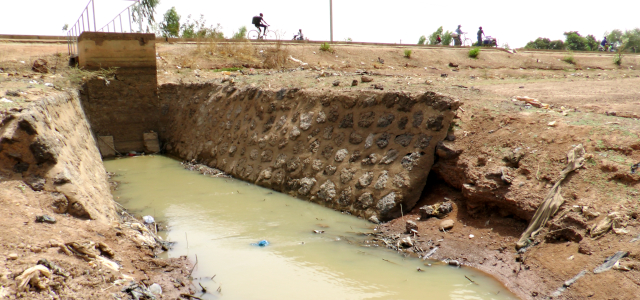UNICEF Burkina Faso is currently carrying out a study to better understand the risks and the impact of climate change on the WASH sector in Burkina Faso. WASH Officer Dipti Rai designed the study, which started in September 2019, and they are halfway through the first phase of the Framework.
“It was when I was designing the study plan that I came across the GWP-UNICEF technical briefs on the website. We decided to use the Risk Assessment Guidance Note for the climate change risk analysis. Fortunately, I was able to participate in the regional climate change and WASH training in Dakar in June 2019. The instructions on the Guidance Note got clearer after the sessions and discussions. We now have an international consultant who is executing the study in the field,” says Dipti Rai, who is pleased with the support that the knowledge product offers for practical work in the field.
“The guidance note was of great help in terms of outlining the risk analysis path that we wanted to follow during the study. Since we lack data and evidence in the WASH climate change sector in the country, we believe this assessment will help us advocate for climate change resilient WASH programming in the upcoming days. We might be able to share a clearer picture towards the end of the study,” says Rai.
Next steps
UNICEF Burkina Faso plans to wrap up the study by the end of this year, and then move on to the second phase of the Framework.
As for lessons learned thus far, and planning for the next steps, Dipti Rai has some suggestions: “We feel that it might be nice to get collective feedback from the framework users and revise the Guidance tool, as we did face some complexities while using the guide. It also occurred to us that there is only an English version of the guide and the tool.”
Some of these suggestions are being addressed. Kidanemariam Jembere Tiruneh is Technical Advisor with GWP Southern Africa, and he is helping to implement the GWP-UNICEF collaboration. He says that key materials are being translated into French, and the Climate Risk Analysis Tool (which is currently Excel-based) is being converted into a web-based tool. Also, after two regional trainings on the Framework in 2019, three more are planned for 2020. Online course modules will be offered, and support given to countries to prepare projects to access climate funds for WASH projects.
Photo: Koubri Dam, Burkina Faso

